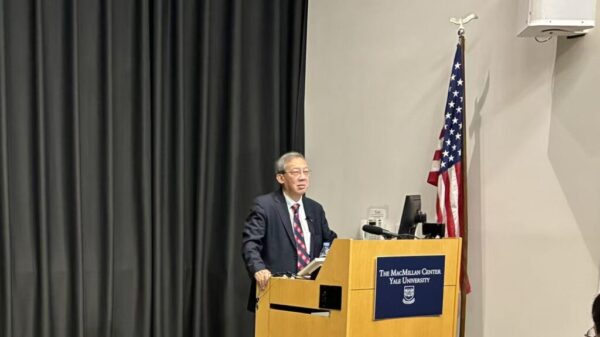In challenging times characterized by conflict and emotional turmoil, a renewed focus on core values such as kindness, joy, and love is essential. The Rev. Christine Sobania Johnson, pastor of College Hill Moravian Church in Bethlehem, emphasizes the importance of these attributes, collectively known as the Fruit of the Spirit, as outlined in Galatians 5:22-23. She draws an analogy between the preservation of seasonal fruits and the cultivation of positive qualities that can sustain individuals and communities during difficult periods.
Johnson reflects on her own experiences with food preservation, particularly her enthusiasm for making Strawberry Freezer Jam. While her efforts may be modest compared to the extensive canning practices of dedicated homesteaders, she admires their ability to transform fresh produce into long-lasting goods. This craftsmanship not only preserves the taste of summer but also serves as a metaphor for maintaining virtue in times of adversity.
The current global climate presents numerous challenges that threaten the flourishing of these vital traits. In a recent statement, United Nations Secretary-General Antonio Guterres highlighted the alarming trend of increasing military spending, asserting that “the world is spending far more on waging war than on building peace.” He described this trajectory as “unsustainable,” indicating that resources crucial for health, education, and poverty reduction are being diverted from essential needs.
The decline of compassion and joy further underscores the urgency of this message. The 2025 Compassion Report from the Muhammed Ali Center reveals that 61% of Americans believe that compassion has diminished in recent years. Additionally, the latest World Happiness Report indicates that the United States has fallen out of the top 20 happiest nations, particularly noting anxiety and dissatisfaction among younger generations. Those under 30 ranked 62nd globally for life satisfaction, raising concerns about the emotional health of this demographic.
Johnson contrasts these troubling statistics with the positive attributes outlined in Galatians. She notes that when individuals focus on self-serving behaviors, the resulting environment can become toxic. The chapter describes a range of negative outcomes, including “repetitive, loveless” actions and “cutthroat competition,” painting a picture of a society where kindness and joy are scarce.
When fresh expressions of the Fruit of the Spirit are hard to find, Johnson advocates for turning to the “preserved” qualities within ourselves. She encourages individuals to tap into their inner resources during difficult times, suggesting that in moments of discouragement, one might “open a jar of joy” or “break out the best — the jar of love.” This metaphorical pantry symbolizes the potential for individuals to draw on their accumulated virtues, sharing them generously with others.
Johnson’s message is clear: as communities navigate turbulent seasons, it is crucial to cultivate and share these positive traits. The act of sharing can foster resilience and connection, allowing individuals to support one another in challenging times. She notes that those who engage in the practice of making jams and jellies often find joy in giving their creations away, a practice that can be mirrored in sharing love, joy, peace, and kindness within communities.
As the world grapples with difficulties, Johnson’s reflections serve as a reminder that, even when the environment is not conducive to growth, the spirit of compassion and positivity can still thrive. The Rev. Christine Sobania Johnson invites all to reflect on their own “root cellars” of virtue and to be generous in sharing the fruits of their spirit until brighter days return.




































































